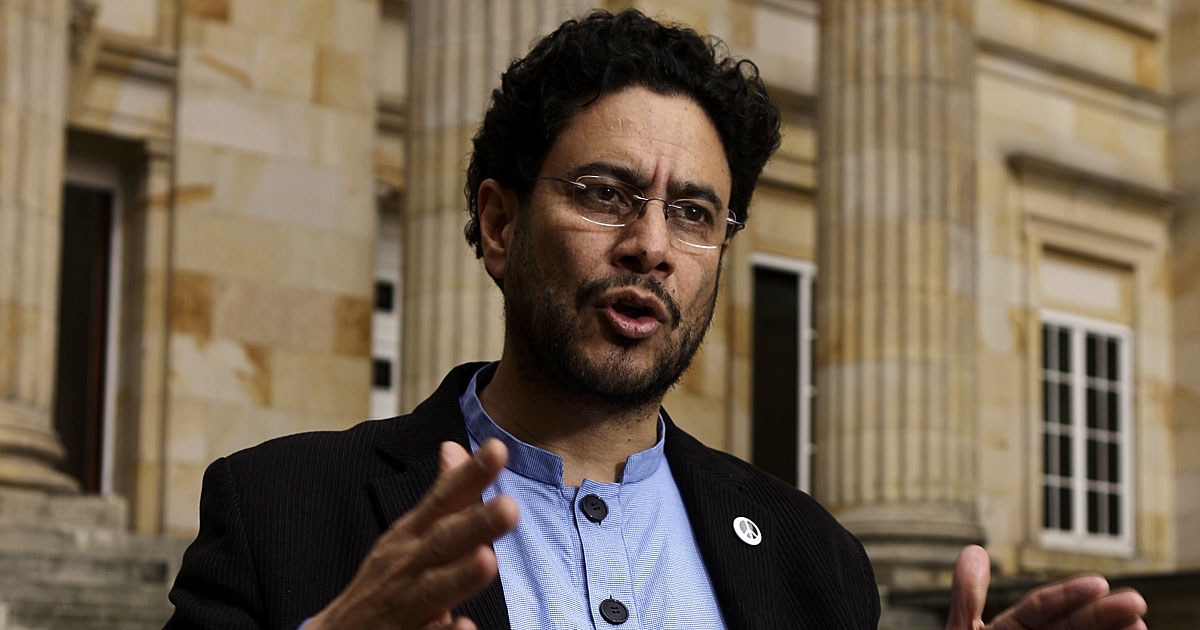






Washington, D.C., May 26, 2010.- The Inter-American Court of Human Rights issued today a judgment that held the Colombian State responsible for the extrajudicial execution of Senator Manuel Cepeda by state agents. The scope of the judgment has a fundamental value for the consolidation of the rule of law in Colombia.
The Court, as a international judicial body whose jurisdiction is established on international treaties ratified by Colombia, issued its decision after it had plenty of documents, statements and other probative elements provided by the State, the Inter-American Commission and the victims, opinions, and information provided by the civil association Unoamérica, and after an extensive debate on questions of fact and law.
The abundant evidence allowed the Court to conclude what was already anticipated before the trial and that had been previously held by different national and international bodies: the assassination of Senator Cepeda was carried out by State agents and paramilitary groups, and makes part of the systematic violence and extermination against the UP. The judgment also sets as the motive of the crime his opposition political militancy. It is worth pointing out that the Colombian justice system itself had accepted the direct participation of members of the army and paramilitary groups in the assassination of the senator.
In this regard, the Court considered that the State did not respect or guarantee the life of the senator. In fact, it increased his level of risk on the basis not only of complacency and negligence in the face of the threats to which he was subjected but also by the statements made by public officials in which they linked the UP and the PCC with the FARC. The public discourse of several officials intensified the hostility and intolerance on the part of public officials and other sectors towards people linked to the UP.
Far from distorting the recent history of Colombia, this judgment clearly demonstrates that a consolidated democracy requires that those who have controversial or critical positions can express themselves, associate, and participate politically without being stigmatized, harassed or killed. This is necessary even when their opinions are offensive or disturbing to the State or other sectors of society.
This pronouncement reaches and prevails to the Colombian current situation, in which stigmatization, threats and harassment persist against human rights defenders, social communicators, and political leaders. Sometimes statements by senior government officials and other social actors, which put these people in situations of great risk, aggravate this situation. The Court itself acknowledged in this specific case that both the son of the Senator, Iván Cepeda, and his family members are still stigmatized, so they are still exposed to harassment and threats.
The recent debates on the content of the judgment, the reclamation of historical memory, the moral imperatives at stake, shows a success of the Inter-American Court by requiring reparation measures that allow to fully understand the levels of responsibility of the involved parties in the foretold and tragic death of Senator Cepeda. In the judgment, the Court requested the State to carry out a public acknowledgment of international responsibility and to vindicate the Senator’s memory.
The rigorous compliance with the judgment of the Cepeda case announced by the Foreign Ministry must be accompanied by effective measures that allow the apologies, acts of recognition and measures of reparation to be adopted in order to respect the letter and spirit of the Court’s decision. The ultimate purpose of the Court’s decision is to amend the damages attributable to the State and recommend measures that allow learning from the mistakes of the past, so as not to repeat the story.
In that regard, the consolidation of democracy in Colombia demands the creation of a space for critical opinions from the left, independents, and the right; but also recognizes the key role that state officials play in respecting the rights of citizens, as well as their responsibility and that of other agents in increasing the vulnerability or risk of various people due to their ideological, political positions or morals. In face of misrepresentations, implicit or explicit justifications of the serious violations of human rights, the State must respond vigorously. In the public debate, it must intervene actively and prudently, promoting tolerance. In that same line, it must adopt effective measures to guarantee the freedom of opinion, political participation and the life of the people.
In the process of compliance with the international sentence, it is up to the State to reaffirm to its citizens that respect for democratic values and the human rights of everyone, including those who participate from polemic or critical positions, is absolute and that compliance with judgments is a democratic imperative.
Help us continue this critical and urgent work with a donation!
DONATE NOW